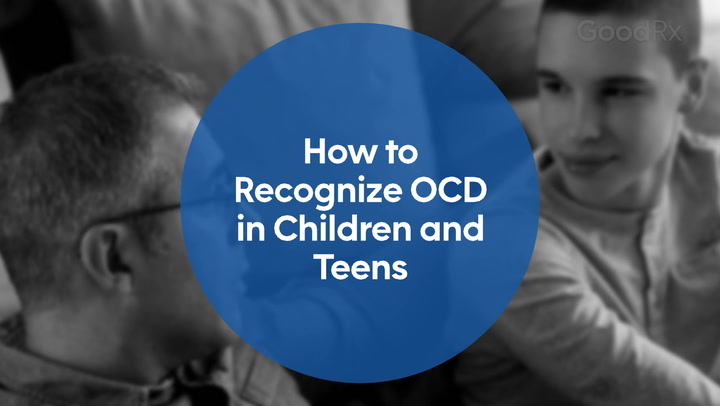
5 Ways to Help Someone With OCD Without Accommodating Their Symptoms
Key takeaways:
Obsessive-compulsive disorder (OCD) is a mental health condition that causes scary, intrusive thoughts, referred to as obsessions. To reduce obsession-related fear, people with OCD perform compulsions — behaviors or rituals that can become debilitating.
Family and friends sometimes accommodate a loved one’s OCD by joining in compulsive behaviors, avoiding situations that arouse anxiety, or modifying routines. However, accommodating your loved one’s symptoms is not helpful to them in the long run.
Effective ways to help a person with OCD include educating yourself, offering to help the person find treatment, not accommodating compulsive behaviors, and providing support and compassion.

Obsessive compulsive disorder (OCD) is a mental health condition that affects around 2% of people in the United States. OCD involves obsessions — unwanted intrusive thoughts — that cause a lot of anxiety. Obsessions lead a person with OCD to perform repetitive behaviors, called compulsions, in order to relieve this anxiety. Compulsions might include things like repetitive hand washing, repeatedly checking for spelling mistakes in an email, or asking multiple family members to confirm that you’ve turned off the oven.
OCD is a complex condition. It affects many areas of a person’s life, including their relationships. As a family member or friend of someone with OCD, you can be a significant source of support to help your loved one look after their mental health.
How can I be supportive of a loved one with OCD?
When a family member or friend has OCD, it’s hard to know what to say or how to help. Read on to learn more about how to support a person with OCD.
1. Learn about OCD
Educate yourself about the condition. This can help you better understand what your loved one is experiencing and how to help them. You can learn about OCD by reading books or listening to podcasts by mental health experts.
You can also find information from reputable organizations such as the International OCD Foundation.
2. Resist accommodating your loved one’s OCD
Accommodation happens when a person enables someone with OCD to carry out their compulsive behaviors. Accommodation can temporarily relieve your loved one’s anxiety. In the long run, however, it only reinforces their cycle of obsessive and compulsive behaviors.
Accommodation can mean:
Performing rituals requested by the person with OCD
Helping them avoid situations that trigger anxiety
Habitually reassuring a loved one that their fears are unfounded
Changing your routines to accommodate them
Some specific examples of accommodation are:
Washing your hands when your loved one asks you to
Doing a task for your loved one so they can avoid the anxiety of doing it themselves, such as opening doors for them
Providing materials needed to continue compulsive behaviors, such as buying large amounts of cleaning supplies
Changing your schedule to help the person with OCD
Reassuring your loved one about their fears, like repeatedly reminding them the oven is turned off
Accommodation is common, especially in families with children who have OCD. If you are accommodating a loved one, the first step is to recognize that you’re doing so. Then, it’s time to change your own behaviors to stop accommodating the OCD.
3. Give support without reinforcing OCD behaviors
You cannot stop a person with OCD from experiencing obsessions. But you can set boundaries to not assist in compulsions. This can be difficult, because it may mean that your loved one experiences more distress. However, you are not actually helping them when you reinforce their OCD.
Your loved one may be upset when you change your behavior — they will likely feel more anxious in the short term. Explain that you are setting boundaries because you care and you want them to get better. Consider working with a therapist who can help you stop accommodating the OCD.
4. Be flexible with your expectations
It is important to remember that OCD is an ongoing condition. People with OCD improve at different rates. And symptoms can come back or intensify during periods of stress.
You can support your loved one by celebrating their progress along the way. Remind them to continue moving forward when they experience setbacks. It can be helpful to remind both yourself and your loved one that change takes time and setbacks are normal.
5. Offer to help them find treatment
There are treatments that can help a person with OCD gain control over their obsessions and compulsions. Treatment for OCD typically involves therapy — usually exposure and response prevention (ERP) therapy. Some people with OCD also benefit from medication.
Some people with OCD might be reluctant to get help. There may be many reasons for this. For example, they could fear being judged.
As a loved one, you can express your concerns about their mental health. Offer to help them find a provider or clinic.
If they resist, you can ask them why. Try to explain the benefits of getting help, and offer to do what you can to make treatment more accessible. For example, you might offer to help with transportation or childcare when they go to appointments.
If they still refuse, let them know that you respect their decision. Remind them that your offer to help still stands if they change their mind in the future.
How can OCD affect relationships?
OCD can affect relationships in many different ways. Family and friends may have a hard time when they see a loved one struggle and don’t know how to help. This can lead to feeling helpless and depressed.
Compulsive behaviors can also be extremely time consuming and disruptive. Family and friends may feel frustrated when:
Their loved one asks for help carrying out compulsions.
They frequently have to wait for their loved one to finish a compulsion.
They’re repeatedly asked for reassurance about an obsessive fear.
OCD may be particularly challenging for romantic partners. Research suggests that people with OCD often struggle with communication in relationships. This may be tied to a need to feel in control and a tendency to avoid uncomfortable emotions. As a result, a partner’s OCD symptoms can put stress on a romantic relationship.
Having a partner with relationship OCD
Relationship OCD is a form of OCD in which a person’s obsessions focus on doubts about their relationship. For example, a person may repeatedly question whether their partner actually loves them or whether the relationship is a good fit.
These obsessions about the relationship take up a considerable amount of time and cause significant distress. They can lead to compulsive behaviors like seeking constant reassurance from their partner or comparing their partner to other people.
If your partner has relationship OCD, suggest to them that the two of you should seek couples therapy. A therapist can help you set boundaries regarding what you will and will not discuss about your relationship. This can help you avoid accommodating your partner’s OCD symptoms while also taking care of your own well-being
Mental health resources for people living with OCD
You can find more information on OCD from the following organizations:
International OCD Foundation (IOCDF): IOCDF provides information on OCD and maintains an online directory of therapists, clinics, and support groups.
National Alliance on Mental Illness (NAMI): Through NAMI, you can find information on OCD, resources for those with mental illness and their loved ones, and support groups through local chapters.
Anxiety and Depression Association of America (ADAA): ADAA provides information on mental health conditions and has an online directory to search for therapists.
Peace of Mind: The Peace of Mind Foundation offers information on living with OCD, treatment, and supporting a loved one. It also hosts a virtual community where you can share personal stories.
The bottom line
OCD is a complex mental health condition that can affect many different areas of a person’s life. As a loved one, you have a role to play in offering support, but it’s important not to enable OCD. Family members and friends may unknowingly reinforce OCD by engaging in accommodation behaviors. To support a person with OCD, learn more about the condition, notice when you are accommodating, and set boundaries. You can also talk to your loved one about the different treatment options for OCD, and offer to assist them in finding help.
Why trust our experts?



References
Doron, G., et al. (2016). Relationship obsessive-compulsive disorder: Interference, symptoms, and maladaptive beliefs. Frontiers in Psychiatry.
International OCD Foundation. (2016). Distinguishing information-seeking and reassurance seeking.
Kasalova, P., et al. (2020). Marriage under control: Obsessive compulsive disorder and partnership. Neuroendocrinology Letters.
National Institute of Mental Health. (n.d.). Obsessive-compulsive disorder (OCD).
Pollard, H. J., et al. (n.d.). Someone I care about is not dealing with their OCD, what can I do about it? International OCD Foundation.
Van Noppen, B., et al. (n.d.). Families: “What can I do to help?” International OCD Foundation.
Van Noppen, B., et al. (n.d.). Living with someone who has OCD. Guidelines for family members. International OCD Foundation.
For additional resources or to connect with mental health services in your area, call SAMHSA’s National Helpline at 1-800-662-4357. For immediate assistance, call the National Suicide Prevention Lifeline at 988, or text HOME to 741-741 to reach the Crisis Text Line.

























